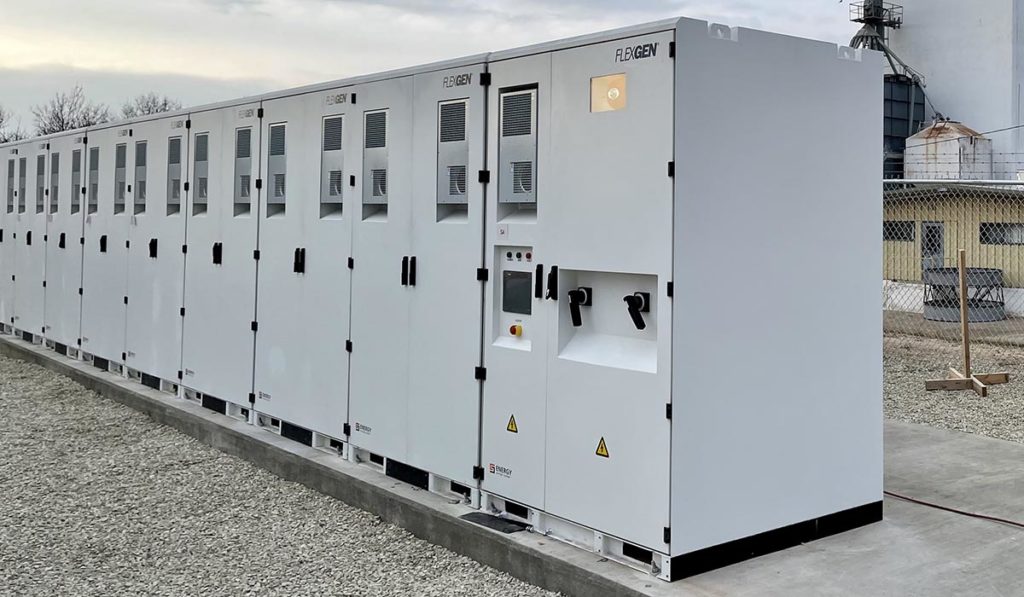
This summer, North Carolina’s Electric Cooperatives will pioneer a utility-scale energy storage plan by coordinating 10 batteries hosted at co-op substations across the state that, operating together, will enhance reliability, offer a platform for innovation and help manage peak demand.
“Energy storage technology will enable us to enhance reliability that will benefit our consumer-members now and in the years to come,” said Amadou Fall, chief operating officer at the statewide association and wholesale electricity provider headquartered in Raleigh.
North Carolina Electric Membership Corp. will own and operate the lithium iron phosphate batteries, which are built by Durham-based FlexGen and will total up to 40 megawatts of storage.
NCEMC will charge the batteries when electricity demand is low and discharge them during peak demand periods, said Louis Duke, a communicator for the statewide association.
These batteries will complement the nearly 500 MW of renewable, distributed and “edge-of-grid” resources that are “integrated or pending integration to N.C. cooperatives’ grids,” Duke said.
The co-ops, which are already involved in innovations such as solar and microgrids, are working together to achieve their “Brighter Future” vision to reach net-zero carbon emissions by 2050 and provide benefits to their rural communities and members through coordination of distributed energy resources, new energy services and continued community support.
“It matches so well with the education of our members,” said Don Bowman, vice president of engineering and operations at Wake EMC in Wake Forest. Wake EMC will host one of the batteries and also previously developed a microgrid for a 31-house subdivision.
“NCEMC, which provides all of our wholesale power, will put their finger on the pulse of the market for us and choose when to charge and discharge. We are basically deferring the need for future generation to be built.”
Brunswick EMC, based in Supply, will also host one of the batteries and sees the project as meeting its members’ priorities that grid innovation must be sustainable, carbon reducing and cost-saving. The co-op has pursued several projects, including a microgrid for a small neighborhood.
“This battery program aligns with our tenets,” said CEO Josh Winslow. “We will continue to lead the integration, management and optimization of resources and technologies that benefit our community.”
NCEMC said the following co-ops are also participating in the battery project in addition to Wake EMC and Brunswick EMC: Carteret-Craven Electric, Central Electric, Four County EMC, Jones-Onslow EMC, Pee Dee Electric, Randolph EMC, South River EMC and Tri-County EMC.
Cathy Cash is a staff writer for NRECA.